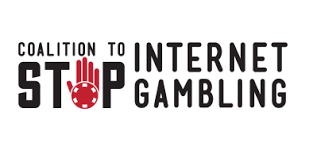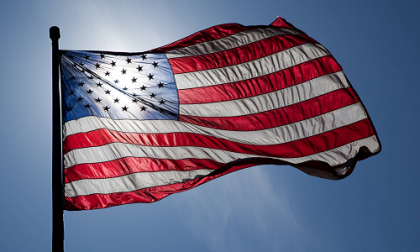Another RAWA-Themed Gasp From a CSIG Acolyte
With legalized sports wagering expanding across the United States on a state-by-state level and legalized online gambling/poker, one hopes, eventually coming along for the ride, it’s been a few months since we’ve heard too much from the RAWA (Restore America’s Wire Act) crowd, otherwise known as Las Vegas Sands Corp. CEO Sheldon Adelson and his Coalition to Stop Gambling paid minions.
That is, until Friday, when CSIG chief legal counsel Darryl Nirenberg released an op-ed attacking gambling in general and the online version in particular at the National Law Journey (law.com), a rather prestigious outlet devoted to the debate of legal topics. Nirenberg’s piece is interesting in many ways, even as it hammers at the same old anti-gambling, fear-mongering arguments as CSIG, via Nirenberg, keeps hammering out Adelson’s “online gambling is evil” agenda.
 Among the most interesting points is that the entire op-ed never mentions RAWA once, though “Wire Act” is in there many times, as it’s — as one would expect — the focus of the piece. Perhaps CSIG has abandoned its RAWA dreams, once and for all? One can only hope.
Among the most interesting points is that the entire op-ed never mentions RAWA once, though “Wire Act” is in there many times, as it’s — as one would expect — the focus of the piece. Perhaps CSIG has abandoned its RAWA dreams, once and for all? One can only hope.
Nirenberg’s latest tries a new tack, that being the righteous behavior of numerous large US banking entities that have refused for quite a few years to accept online-gambling transactions. Nirenberg cites these banks, including American Express, Bank of America, JPMorgan Chase and Wells Fargo, as “having money on the line” and thus being unwilling to process these transactions that were interpreted as not being illegal in the famous and controversial DOJ opinion offered in late 2011 by then US Attorney General Eric Holder.
Holder and the DOJ were the demons, according to Nirenberg: “DOJ’s goal: Make an end run around Congress and the courts to help cash-strapped states reap the rewards expected to come from converting Americans’ cellphones into mobile slot machines.”
And this: “There is no indication DOJ, in opening the door to online casinos, gave any consideration to how internet gambling invariably ensnares society’s most vulnerable—underage youth, the poor and problem gamblers.”
Nirenberg also sanctifies the supposedly higher moral stance of these banks: “Maybe this helps explain why these highly respected financial refuse to ‘process any money interactions on these sites.’” Christ on a cracker, that’s rich. Wells Fargo, for instance, has been embroiled in a years-long scandal over its creation of millions of bogus accounts and credit lines in their customers’ names without those customers’ knowledge. And Bank of America paid a $430 million settlement in 2016 for misusing customers’ cash, and earlier this year the company was found to have doctored the paperwork on 16 million stock trades, making investors think certain trades were taking place in-house, when they weren’t.
And Lord, JPMorgan Chase. There aren’t enough days in a year to properly document that company’s sins.
Yet all of it beggars the point. Niremberg glams up all this high and holy false praise to bolster his central claim, that Holder’s 2011 DOJ opinion was wrong and that the 1961 Wire Act should still be in effect, being used to block all of online gambling. Perhaps that would come as a re-worked, re-DOJ’d override of Holder’s opinion.
Except nowhere in this highly skewed op/ed will you hear of many of the legal precedents that supported Holder’s opinion, such as the famed In Re: Mastercard decision from way back in 2002. Despite Nirenberg’s demonizing and partial admittance that the horridly constructed 2006 Unlawful Internet Gambling Enforcement Act (UIGEA) was the central reason US banks didn’t enter the space, Holder’s opinion was and remains on far more solid ground than Adelson’s CSIG crowd would ever admit.
It wasn’t “flimsy” at all, despite Nirenberg asserting such in his conclusion: “As states rush to cash in on the Supreme Court’s recent ruling permitting sports betting, it is instructive that, when it comes to online casino gambling, the country’s biggest banks continue to favor the law over a unilateral decree rendered by a lawyer; the full force of law over a flimsy opinion.”
The big banks aren’t favoring “the law” at all; if they’ve been conservative and have done some overblocking, regarding credit-card use in particular, that has more to do with money-laundering and anti-terrorism protections and concerns than the legality of these US state-regulated games. And you can take it to the bank, as long as it’s not one of those mentioned above.




















COMMENTS